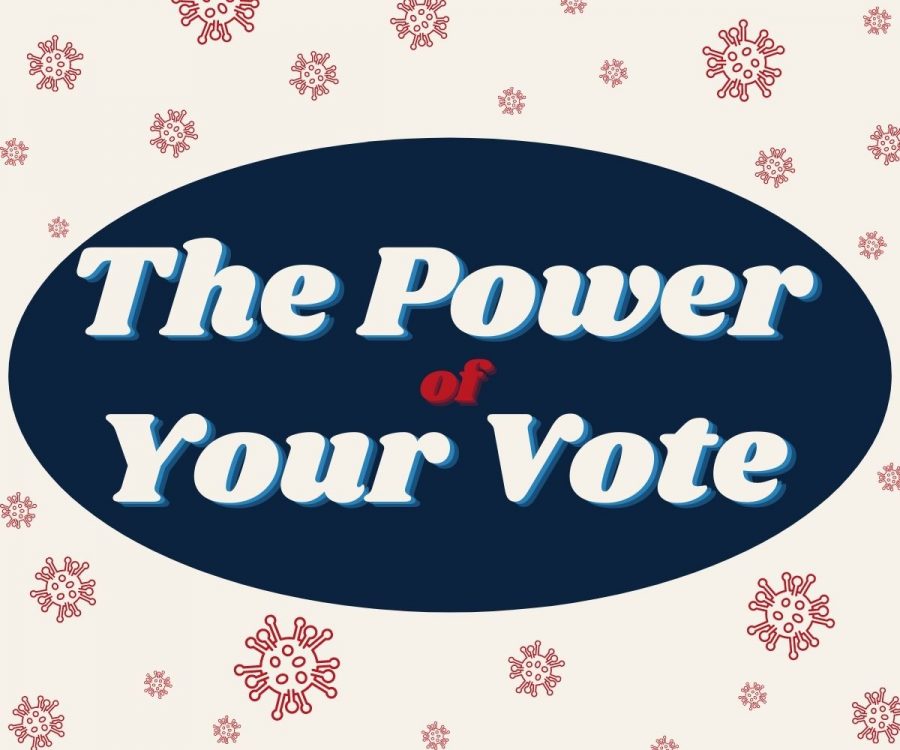The Power of Your Vote
The election approaches, and the influence of voting is being widely discussed. While voting can’t solve all of our problems, it’s still a powerful tool to influence change.
It’s been a long year.
We’ve watched a pandemic sweep the nation, dominating our lives and ending over 200,000 others, with no signs of stopping. We’ve seen a country divided over the question of whether Black Americans are deserving of the basic human rights that they’ve been denied of for so long. We’ve looked on as increasingly powerful hurricanes and unstoppable wildfires devastated large swaths of the country, uprooting homes and families.
Through it all, we’ve seen elected officials at nearly every level of government ignore the voices and wellbeing of the people they’re supposed to represent. Though many of these events were unavoidable – pandemics are an unfortunate byproduct of nature – incompetent leadership has allowed them to grow into catastrophes.
Now, only days away from the election on Nov. 3, we are told that if we all just vote, ushering in a new wave of leadership, then we’ll find ourselves finally able to cure the many diseases that currently sicken our nation.
In truth, voting can’t provide a cure – no percentage of voter turnout will magically build up our broken nation into a palace of prosperity. What voting can provide is a foundation, without which we are left balancing on dangerously unstable ground. Voting isn’t everything, but it is a necessary something.
While many issues are addressed through protesting and non-electoral advocacy, that advocacy is still frequently dependent on the outcome of elections. Some politicians are willing to work with their constituents to address important issues, while others are actively hostile, demonizing protesters and threatening their first amendment rights.
Though many candidates for election present only subpar stances on issues, something is almost always better than nothing. For example, while none of the candidates in any election have the power to single handedly stop the climate crisis, they do have the ability to protect important wildlife refuges from logging and oil drilling, or to help a coastal city like Tampa defend against sea level rise. This is in contrast with other politicians, whose policies (deregulation of pollution, an expansion of drilling) would actively accelerate climate change.
Regardless of national politics, local elections have major impacts on our day-to-day lives. These down ballot races can determine access to schools and public transportation, among countless other important issues. For instance, Amendment 2, a proposed amendment to the Florida Constitution, would gradually raise the state minimum wage to $15 an hour, potentially improving the quality of life for thousands of minimum wage workers across the state.
Perhaps the most obvious indicator of the impact of voting is the unconcealed effort that so many politicians are putting towards preventing people (especially Black and Brown people) from casting their vote. Government officials have limited the number of polling places, forcing voters to wait in line for hours at time. They’ve also attempted to limit mail-in voting at a time when many Americans fear for their health if they vote in-person.
In what is frequently touted as “the world’s oldest democracy,” why would politicians work so hard to undermine the right to vote? If allowed to occur unobstructed, voting is a tool of the people.
The choice of whether to vote is not a question of if voting matters to those in power – it certainly does – it is a question of whether voting matters to you. There is, of course, no shame in choosing not to vote; voting is a right, not an obligation, and there are many other methods of enacting change.
However, for those who can vote, I ask that you consider the value your vote has, especially in conjunction with thousands of other voters. There is strength in numbers, enough strength to build the foundation for a more equal, hopeful and prosperous future.

